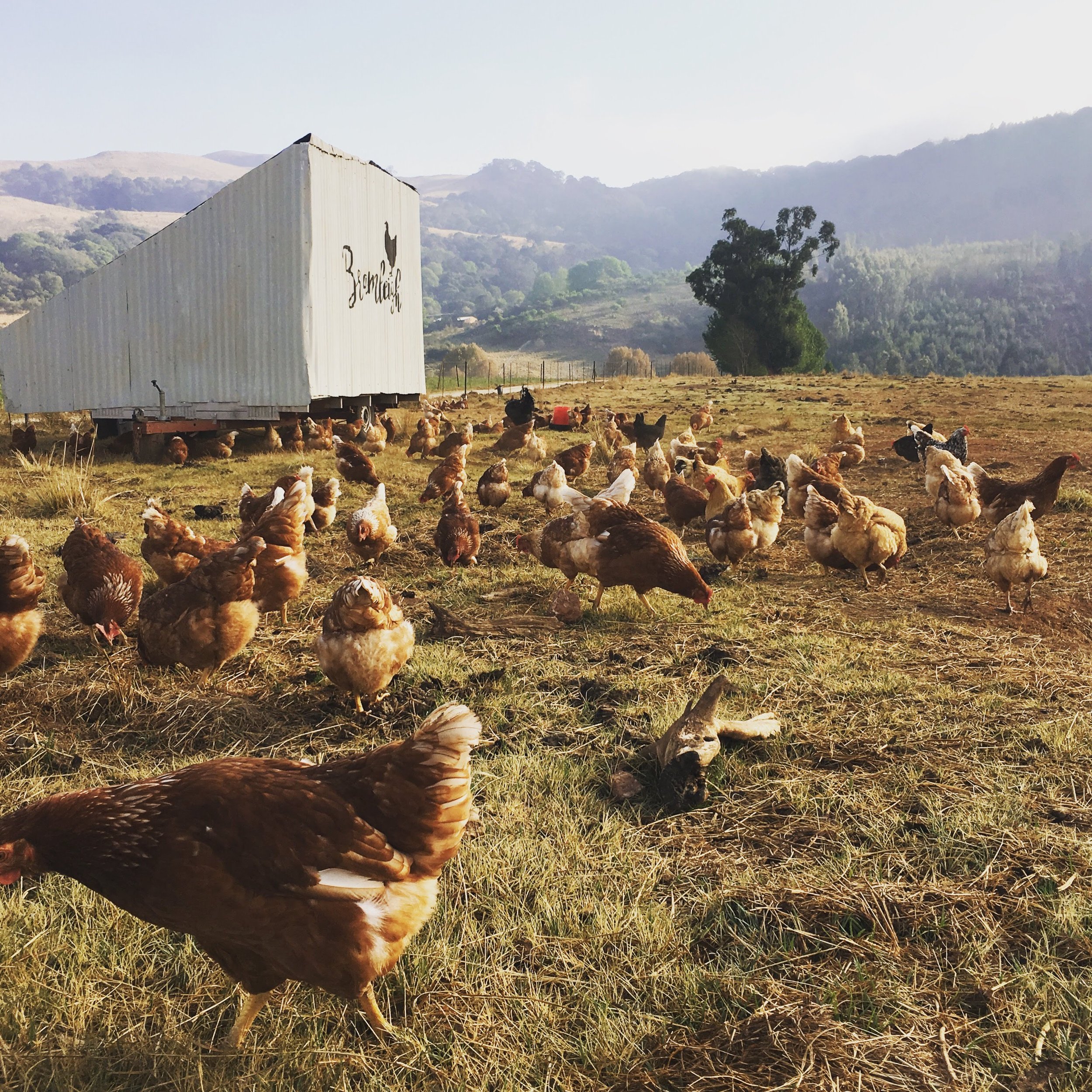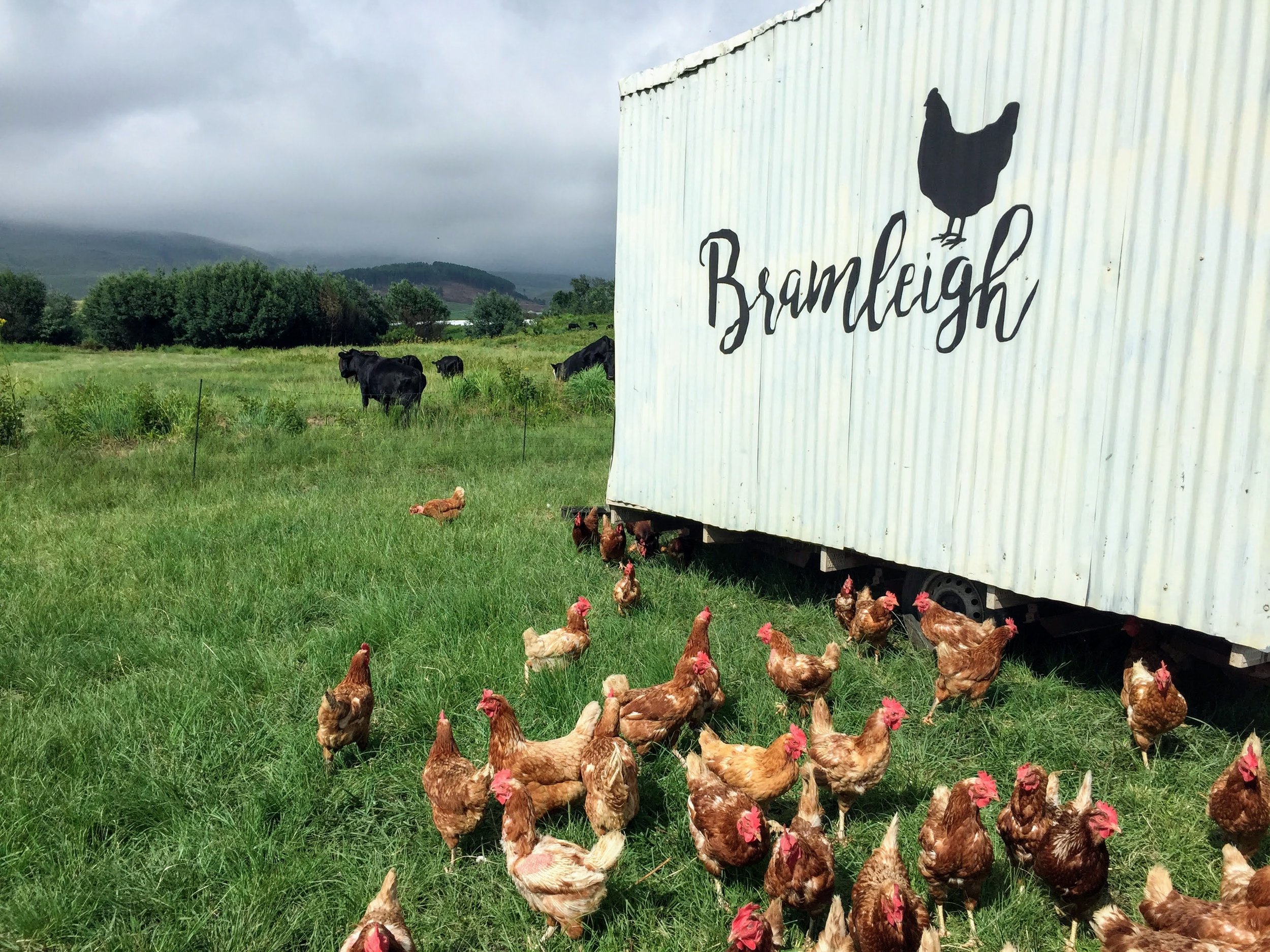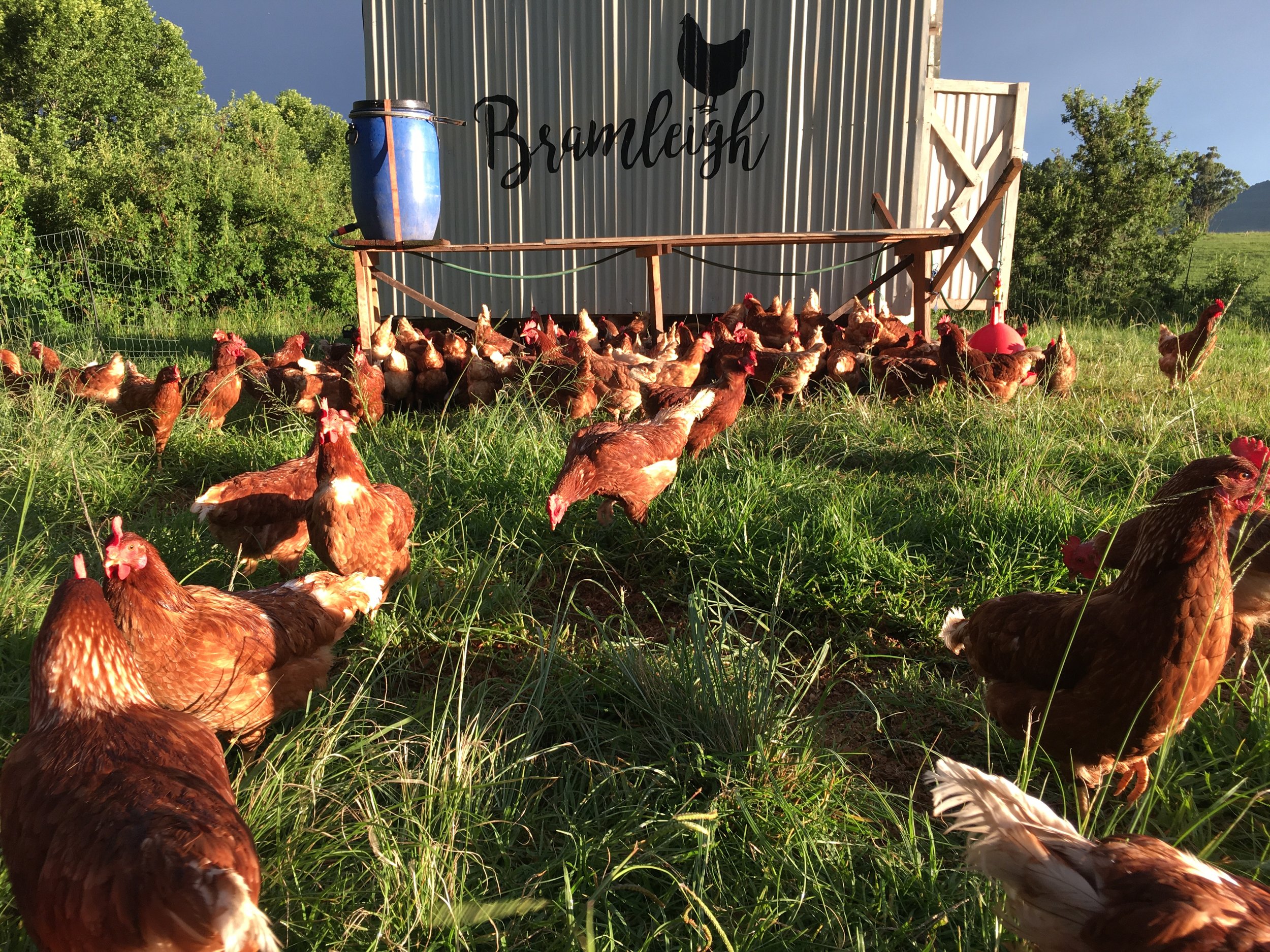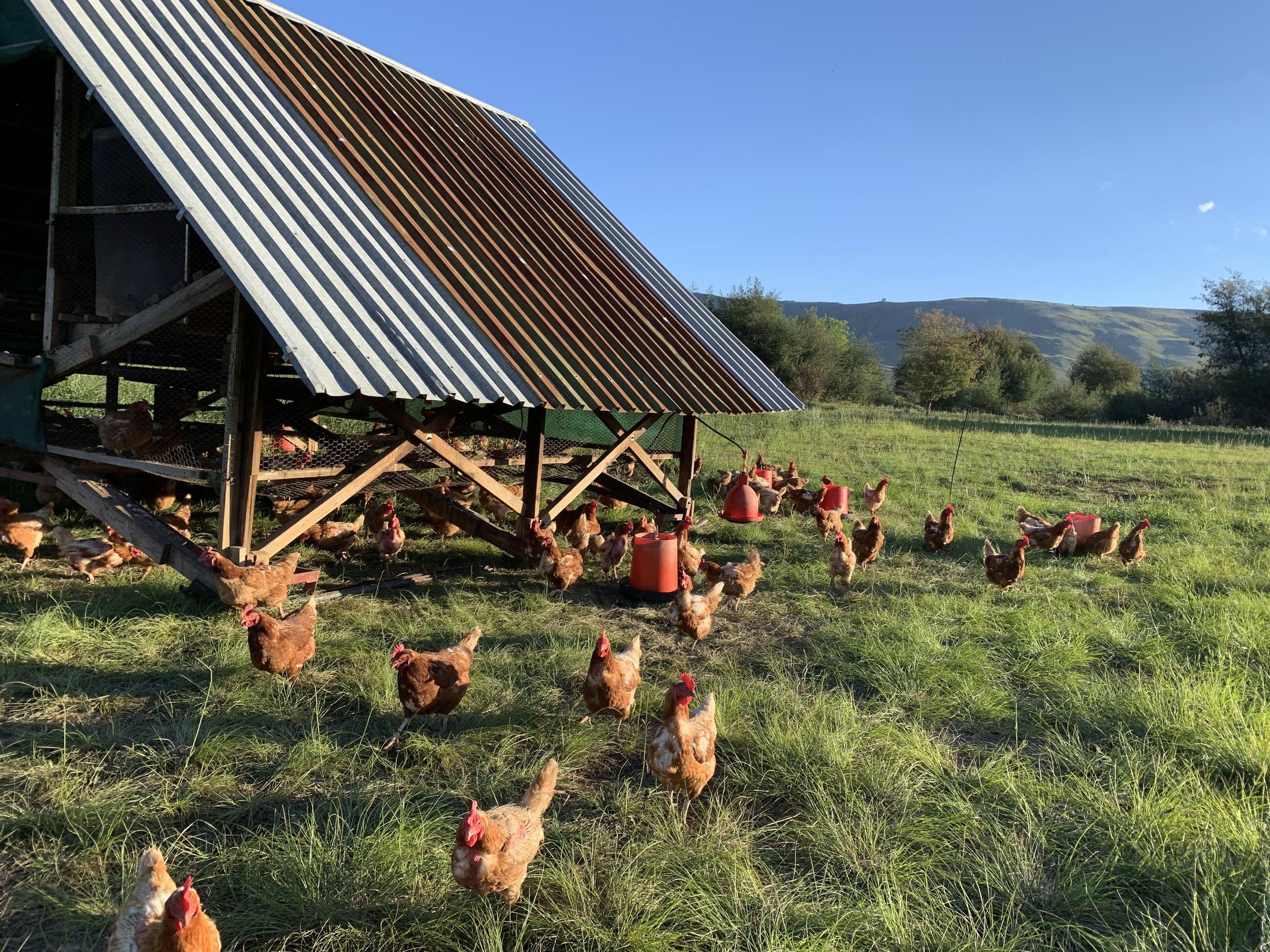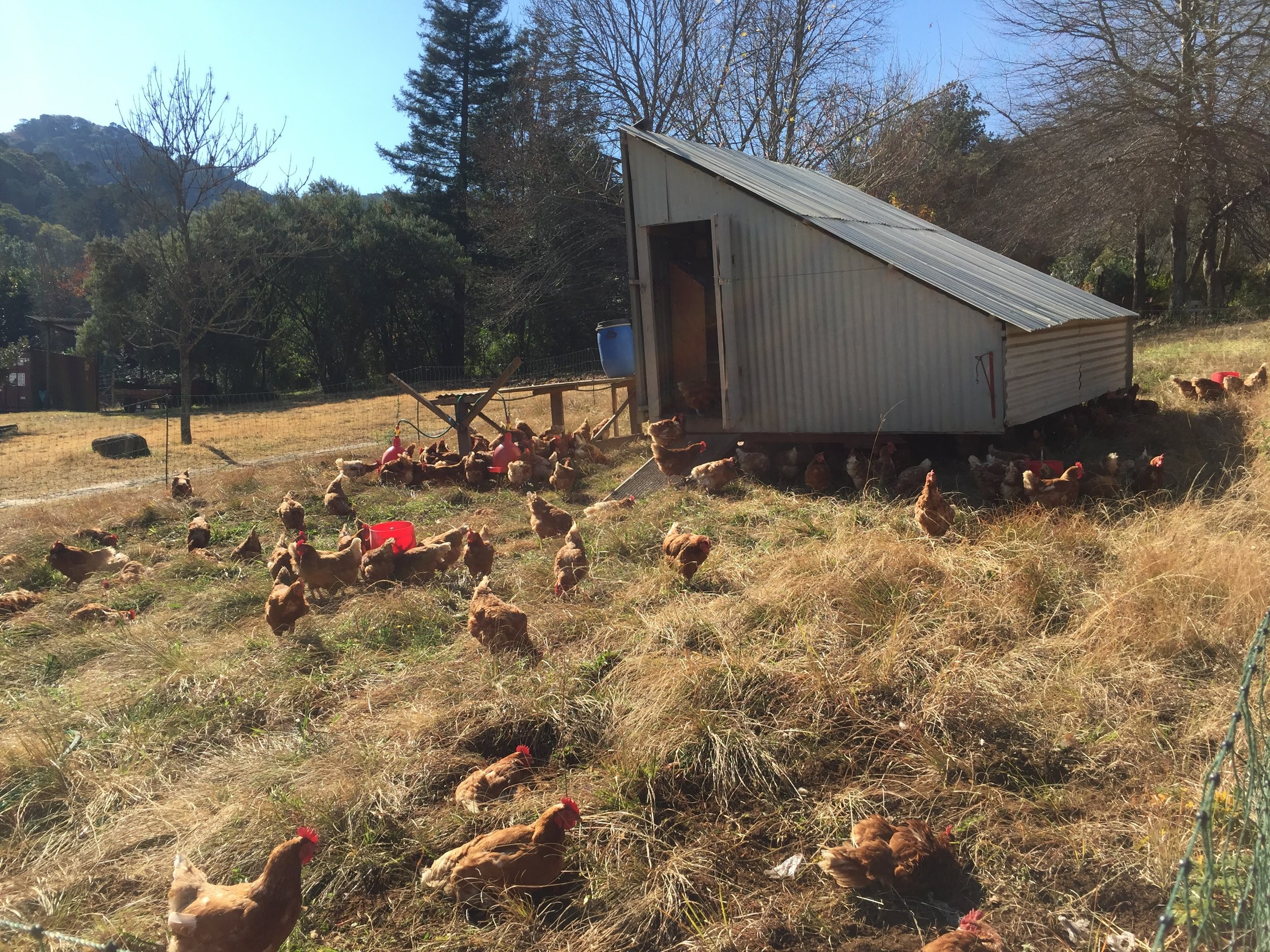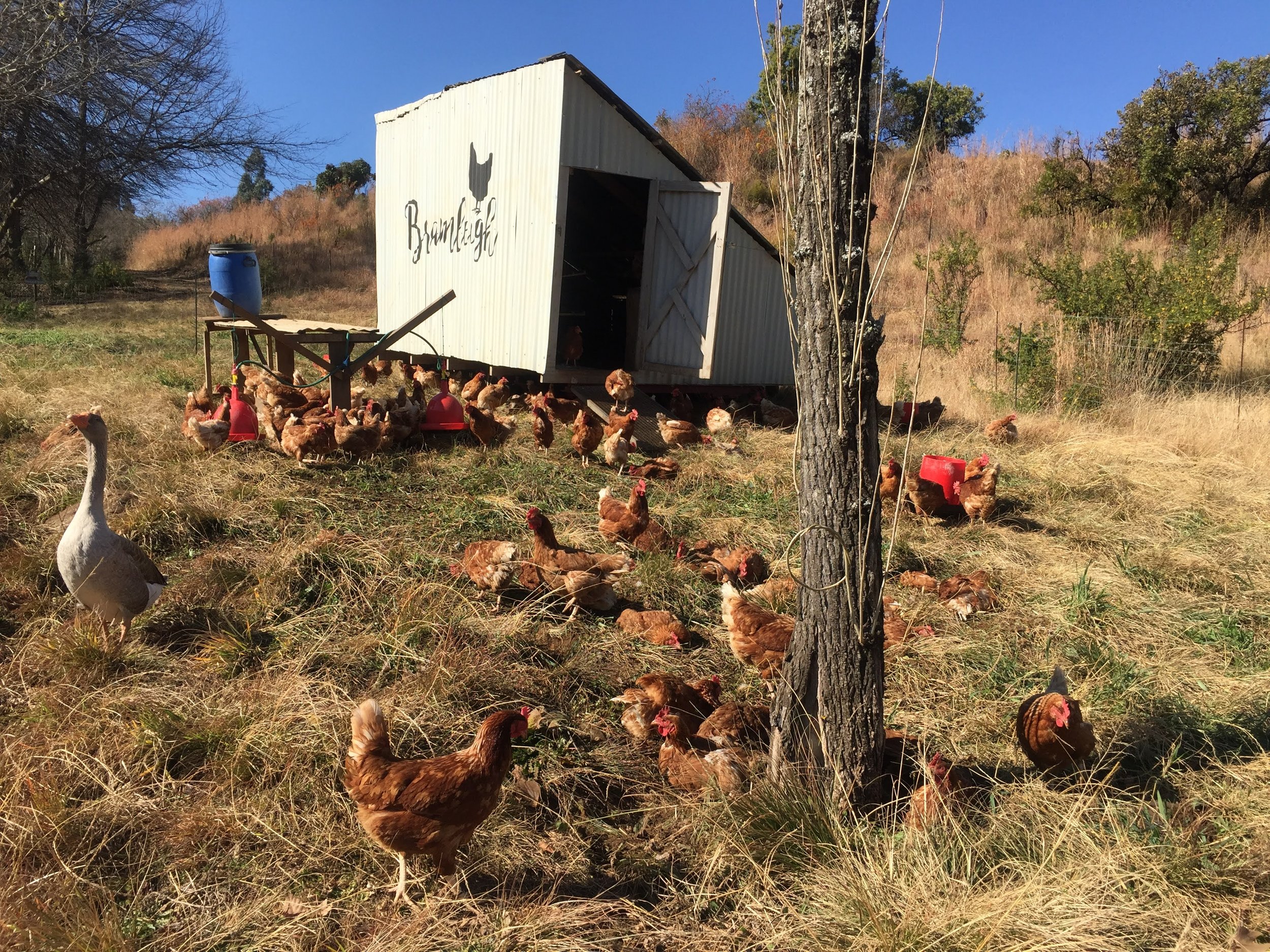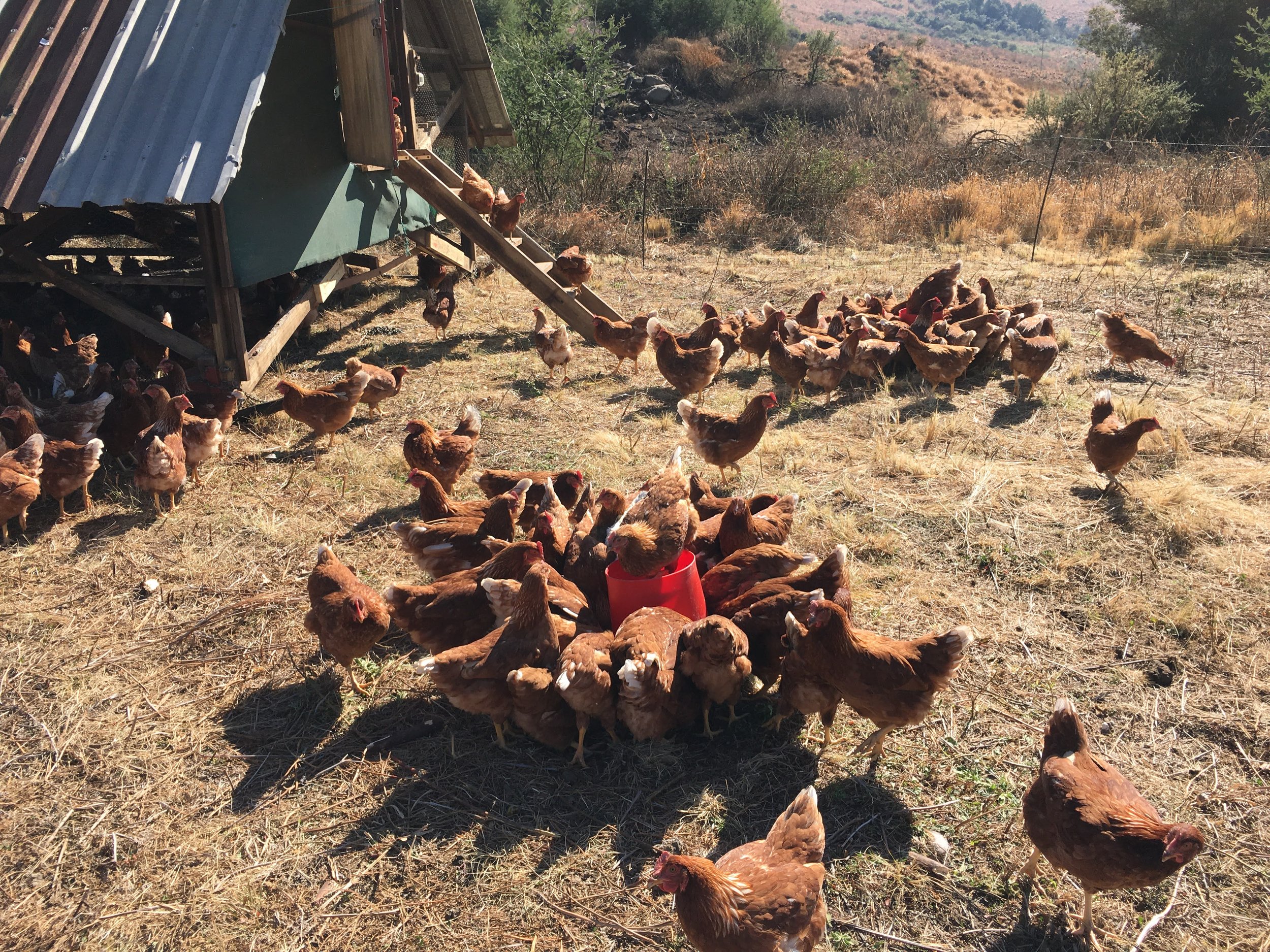Eggs are seasonal? Say what!?
If I wanted tomatoes in July, I’d be hard-pressed. Or cauliflower in February. And that’s acceptable at most farmers markets. Vegetables are seasonal. Different vegetables need different soil temperatures, ambient temperatures and water levels to produce. Animals follow a similar natural rhythm. Cows produce less milk during winter. There is less nutritious grass. Chickens lay fewer eggs during winter. The grass is dormant, insects are fewer, days are shorter and nights are colder. In a natural setting, this means fewer eggs in cooler months. Hens are designed to lay eggs in abundance during spring, a time when hatching chicks would provide the most excellent chances of survival for a Mama Hen’s babies. Winter is a less than ideal time for that. So contrary to what the supermarkets would have us believe, eggs are actually seasonal, just like vegetables!
(photo above: hens in winter with very little grass compared to lush green grass providing plentiful forage and insect life)
By staggering ages of hens, farmers can try to ensure a consistent supply as much as possible. Young hens will lay many eggs early on, and then decline with age. By having a continuous intake of hens, production can be held as much as possible, although even young hens will lay less in winter. This is the way we aim to keep consistent production but it can be tricky to ensure the hens are already laying before the cold hits, otherwise they delay the start of laying instinctually.
(photo above: hens in summer enjoying long, warm days)
Hens are stimulated to lay eggs by light. So longer, warmer days mean more eggs. Hens can be tricked into laying eggs in abundance during the dark, cold winter months by providing additional artificial lighting. But this means less sleep for the poor ladies and can create stress.
We allow our hens an extra two or so hours of light at night when they’re tucking themselves onto their roost so that there is enough light for them to still produce a few eggs, far fewer than in spring in summer, but allowing them the natural rest of shorter days in winter.
(photo above: hens in winter where forage is scarce, days are short and cold)
During winter, the hens use their energy to keep warm and moult, where they lose feathers and regrow new feathers for the colder weather. Hens do sometimes moult outside of the winter months, based on their age, during which time egg laying stops completely! In industrial settings, hens are often forced into moult at a time that is more convenient to production.
A proud hen surveying the loot of the day
Feeding hens through winters and moults, with little return in eggs, is very costly to the farmer, yet the price of eggs remain constant through the year.
Small scale, local, mindful farms will often have a reduction in eggs during the winter months. Just as the local veg guys do. This means they are allowing their hens to follow a natural rhythm. While customers can choose to store eggs for several months in the fridge, or freeze eggs, we make sure to sell whatever we produce each week. This means finding new markets in the abundant months, and scraping through with what we can in the winter months. So while it may be extremely frustrating as a customer to not have your usual supply of eggs consistently, remember that this means your local farmers are allowing the hens to rest, to moult, and to live more naturally, more seasonally. Enjoy an abundance of eggs and variety of veg in summer, and consume mindfully in winter the hard won crops, and few eggs.
To our ever patient customers who are plodding through another winter with us and scarcity, THANK YOU for your patience and allowing us to raise animals as naturally as we possibly can. To future customers waiting in line each week only to be disappointed, please bear with us! Soon we will be drowning in eggs again:)

